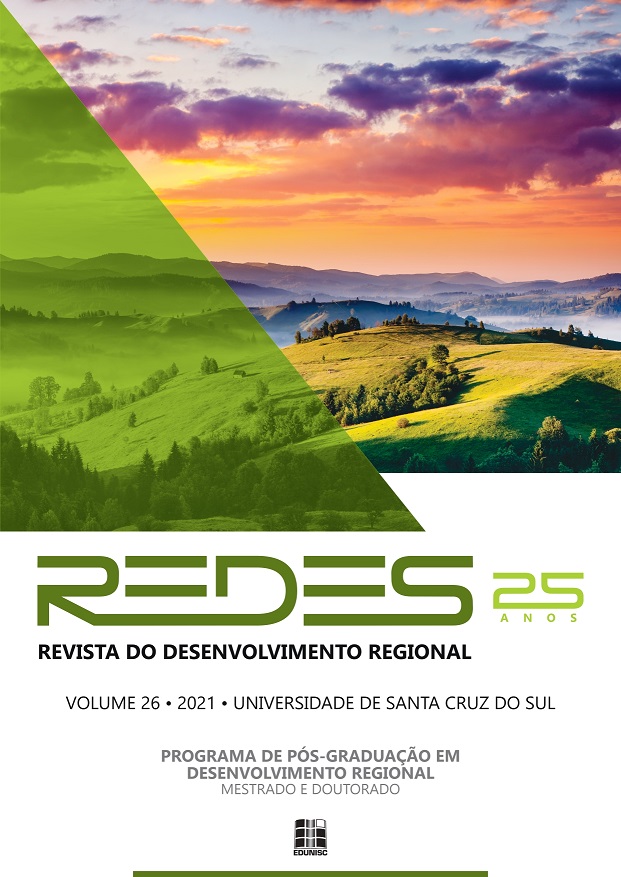Qualification of Public Communication processes in the social and democratic strengthening of the right to information: the Portuguese and Brazilian realities
DOI:
https://doi.org/10.17058/redes.v26i0.15720Keywords:
Public Communication, Public policy, Complexity, Folkcommunication, Communicative actionAbstract
This article aims to show important concepts of Public Citizen Communication, comparing the communicational practices, within the scope of local power, between Portugal and Brazil, two countries united by the same language, but with different realities in the social and cultural planes. Based on the Authors' Survey (2018-2019), the work seeks to describe the analysis carried out in four Portuguese and Brazilian cities with the objective of knowing and evaluating the processes of information transmission, by the public power, as a social and constitutional. Through content analysis, the methodology starts from a triple sampling section through interviews with managers and professionals involved in the transmission of public information, in the application of questionnaires to citizens and, finally, through the documentary analysis of the printed and available materials in the internet (websites). The evaluation of the importance of dialogue and effective understanding of information was based on the precepts of Edgar Morin, Luiz Beltrão and Jürgen Habermas, within the scope of the Complexity Paradigm, Folkcommunication and Theory of Communicative Acting, respectively. When confronting the historical model and claiming the right to information to current public policies of transparency and total quality, the results highlighted the importance of dialogue as a democratic instrument for excellence in Public Communication for the benefit of citizenship. The conclusion recommends that the procedures for transmitting information, while public, respect the cultural background and life history of each individual: a new form of communication, dialogical, adopting a simplified language adapting technical knowledge to the common, allowing an effective understanding of the content.Downloads
References
BAGNO, M. Preconceito Linguístico: o que é, como se faz. 6. ed. São Paulo: Edições Loyola, 1993.
BARDIN, L. Análise de conteúdo. Trad. Luís Antero Reto e Augusto Pinheiro.
Lisboa: Edições 70, 2016.
BELTRÃO, L. Comunicação popular e região no Brasil. In: MARQUES DE MELO, J. (Org.). Comunicação/Incomunicação no Brasil. São Paulo: Loyola; UCBC, 1976.
___________. Folkcomunicação: a comunicação dos marginalizados. São Paulo:
Cortez, 180.
___________. Folkcomunicação: Um estudo dos agentes e dos meios populares de informação de fatos e expressão de ideias. Porto Alegre: Edipucrs, 2001.
BRASIL. Constituição da República Federativa do Brasil. Texto promulgado em 05 de outubro de 1988.
Disponível em:< http://livraria.senado.gov.br/ebook.constituicao >. Acesso em: 15 jun. 2012.
DUARTE, J. Instrumento de comunicação pública. In: DUARTE, J. (Org.). Comunicação pública: estado, mercado, sociedade e interesse público. São Paulo: Atlas, 2007.
HABERMAS, J. Técnica e ciência como ideologia. Lisboa, Portugal: Edições 70,
___________. Teoria do agir comunicativo. v. I. São Paulo: Martins Fontes, 2012.
HALL, S. A Identidade Cultural na Modernidade. 8ª edição, 2005.
HOHLFELDT, A. Folkcomunicação: positivo oportunismo de quase meio século. In: Anuário UNESCO/UMESP de comunicação regional, São Bernardo do Campo, São Paulo, v. 1, n. 5, p. 82-23, 2002.
KUNSCH, Margarida. Comunicação pública: direitos e cidadania, fundamentos e práticas. In: Matos, Heloiza (Org.). Comunicação pública: interlocuções, interlocutores e perspectiva. São Paulo: ECA-USP, 2013.
MAFFESOLI, M. A comunicação sem fim: teoria pós-moderna da comunicação. In: MARTINS, F.; SILVA, J. (orgs.) A genealogia do virtual: comunicação, cultura e tecnologias do imaginário. Porto Alegre: Sulina, 2004.
MATOS, H. Comunicação pública, democracia e cidadania: o caso do legislativo. Líbero, Faculdade Casper Líbero, a. II, n. 3-4, 1999, p. 32-37.
MORIN, E. Introdução ao Pensamento Complexo. Tradução do francês: Eliane Lisboa - Porto Alegre: Ed. Sulina, 2005.
___________. Os sete saberes necessário à educação do futuro. Tradução de Catarina Eleonora F. da Silva e Jeanne Sawaya; revisão técnica de Edgard de Assis Carvalho – 2ª ed. rev. – São Paulo: Cortez, Brasília, DF: UNESCO, 2011.
PAIVA, R. Mídia e Comunidade. In: PAIVA, R. (org.). O retorno da comunidade. Rio de Janeiro: Mauad, 2007.
PORTUGAL. Constituição 1976. Constituição da República Portuguesa. Parlamento. Disponível em: <http://www.parlamento.pt/Legislacao/Paginas/ConstituicaoRepublicaPortuguesa.aspx > . Acesso em: 15 out. 2016.
SANTOS, B. Para uma sociologia das ausências e uma sociologia das emergências. In: Revista Crítica de Ciências Sociais, n. 63, p. 237-280, 2002. Centro de Estudos Sociais da Universidade de Coimbra, - Coimbra, Portugal.
WOLTON, D. Informar não é comunicar. Porto Alegre: Sulina, 2010.
VYGOTSKY, L. A formação social da mente. São Paulo: Martins Fontes, 1991.



